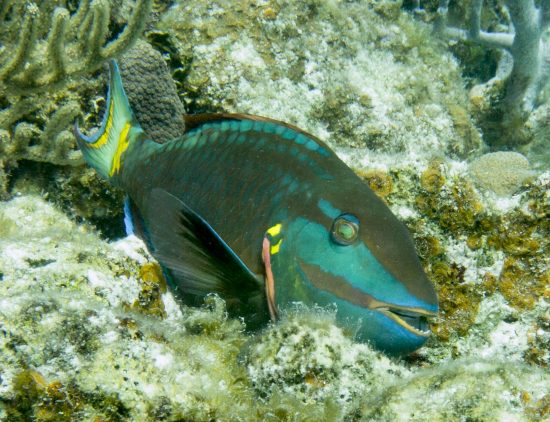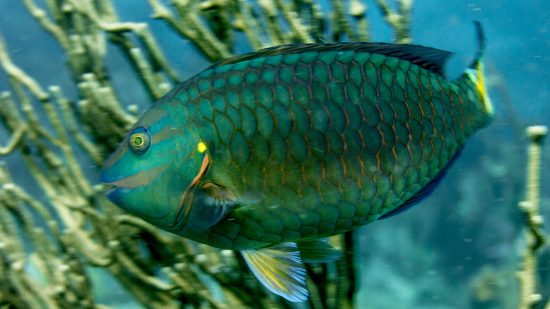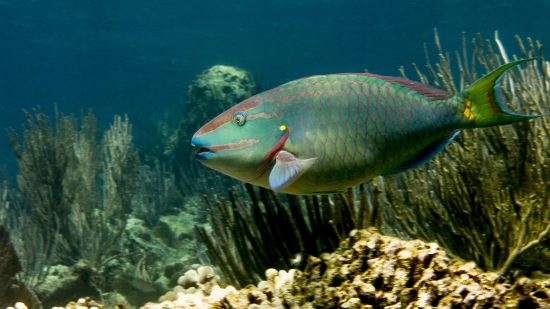




To better protect the coral reefs of the
Caribbean, tighter fishery regulations are needed to offset the mounting pressures
they face from global warming, pollution and the overfishing of herbivorous
fish.
This was the conclusion reached by an
international team led by researchers from the ARC Centre of Excellence for
Coral Reef Studies and University of Queensland (UQ). Details of the study was
published in the journal Proceedings of the National Academy of Sciences of
the United States of America.
According to Dr Yves-Marie Bozec, from the
ARC Centre of Excellence for Coral Reef Studies and UQ School of Biological Sciences,
herbivorous parrotfish are urgently needed in the coral reef ecosystem as they
eat the algae that smother corals and inhibit them from recovering.
“While several countries in the Caribbean
have taken the bold step of banning the fishing of parrotfish (including
Belize, Bonaire, Turks and Caicos Islands), parrotfish fisheries remain in much
of the region,” said Dr Bozec.
The team studied the impact of fishing
activities on parrotfish as well as the role of the parrotfish’s role on coral reefs. They then concluded that having unregulated
fisheries would seriously reduce the resilience of coral reefs.
Dr Bozec suggested the “implementation of
size limits and catch limits to less than 10 percent of the fishable stock [to]
provide a far better outlook for reefs, while also allowing the fishery to
persist.”
Co-author Peter Mumby said that some
countries had wanted to revise their current fisheries to reduce their impact
on reefs, and their study had identified fisheries’ policies that could help
to achieve this.
The researchers assert that science should
be used to revise current fisheries practices for the herbivorous fish in the
Caribbean. They have provided tools to help fisheries managers implement such
changes.
Professor
Mumby said, “The more we do to maintain healthy coral reefs,
the more likely it is that fishers’ livelihoods will be sustained into the future. [...]
We already know that failure to maintain coral habitats will lead to at least a
threefold reduction in future fish catches.”
Source:
http://www.coralcoe.org.au
Link to
study: http://www.pnas.org/content/early/2016/03/31/1601529113.full
 Mares
Mares 13th April 2016
13th April 2016 Caribbean Sea
Caribbean Sea